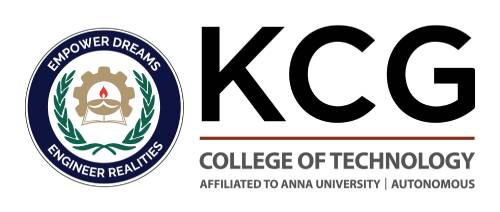Engineering Dreams: Making the School to College Transition Seamless
Embarking on the crucial journey from school to college is an exciting yet challenging phase in any student’s life. This transition marks a pivotal moment, full of new experiences and opportunities. Here are some key strategies to ensure a smooth shift and successful adaptation to college life.
Embrace a Growth Mindset:
Entering college signifies exposure to a more rigorous and challenging academic environment. Embrace a growth mindset by viewing challenges as opportunities for learning and growth. Be open to acquiring new skills, expanding your knowledge, and adapting to new methodologies. This approach not only enhances your learning experience but also helps in personal development.
Develop Effective Time Management:
Being a student in an engineering college demands a balance between academics, co-curricular activities and leisure time. Time management is crucial to ensure equal emphasis is given to academic development as well as personal improvement. Create a schedule that allocates time for studying, projects, socializing, and relaxation. Utilize tools like planners or apps to stay organized and on top of deadlines.
Engage Actively in Campus Life:
Engineering colleges in Chennai offer a vibrant campus life with numerous clubs, societies, and events. Participate in these activities to meet new people, hone your talents, and explore your interests beyond academics. Active engagement not only enhances your resume but also fosters personal growth and networking.
Leverage Digital Resources:
In the digital age, the internet is a rich source of information which you can leverage to improve your knowledge and learn new skills. Make use of e-libraries, online tutorials, and educational platforms to supplement your learning. This proactive approach can help you grasp complex concepts, stay updated with the latest trends and excel in your studies.
Seek Guidance and Mentorship:
Do not hesitate to seek guidance from professors, seniors, your fellow classmates or mentors. They can offer valuable insights, share their experiences, and provide guidance on academic and career paths. Their advice can be instrumental in making informed decisions and overcoming challenges.
Cultivate Soft Skills:
Engineering is not just about technical knowledge, as soft skills play a pivotal role in your success. Communication, teamwork, problem-solving, and adaptability are highly sought-after skills in the industry. Engage in group projects, presentations, and workshops to refine these skills.
Stay Inquisitive:
Curiosity fuels innovation. Keep asking questions and exploring beyond the curriculum. Attend seminars, workshops, and guest lectures to broaden your horizons and gain exposure to diverse perspectives within the engineering field.
Prioritize Health and Well-being:
Maintaining good physical and mental health is paramount to having a well-rounded college experience. Regular exercise, balanced nutrition and adequate sleep contribute to your overall well-being. Engage in stress-relieving activities, practice mindfulness, and seek support when needed.
Transitioning from school to an engineering college is a transformative journey that fosters adaptability, perseverance and resilience. Remember, each challenge you overcome and every achievement you earn contributes to your personal and professional growth. Your engineering college years are an opportunity to shape your future and lay the foundation for a successful career in the ever-evolving world of technology.








